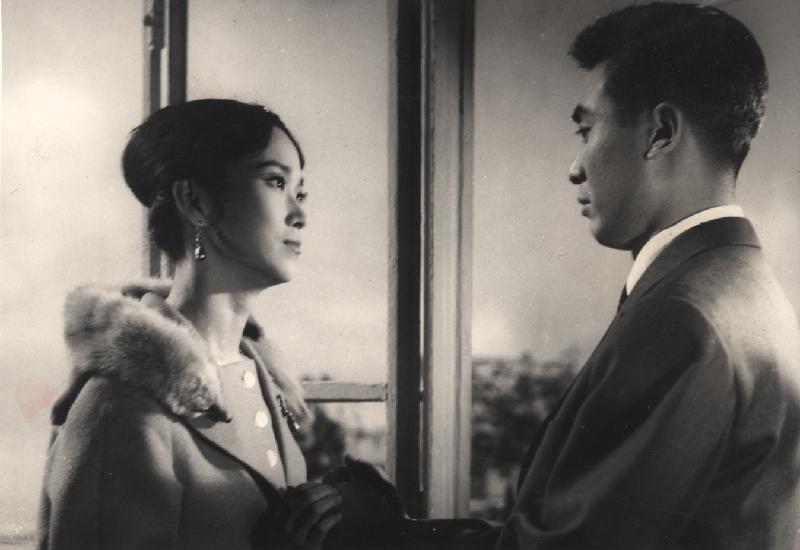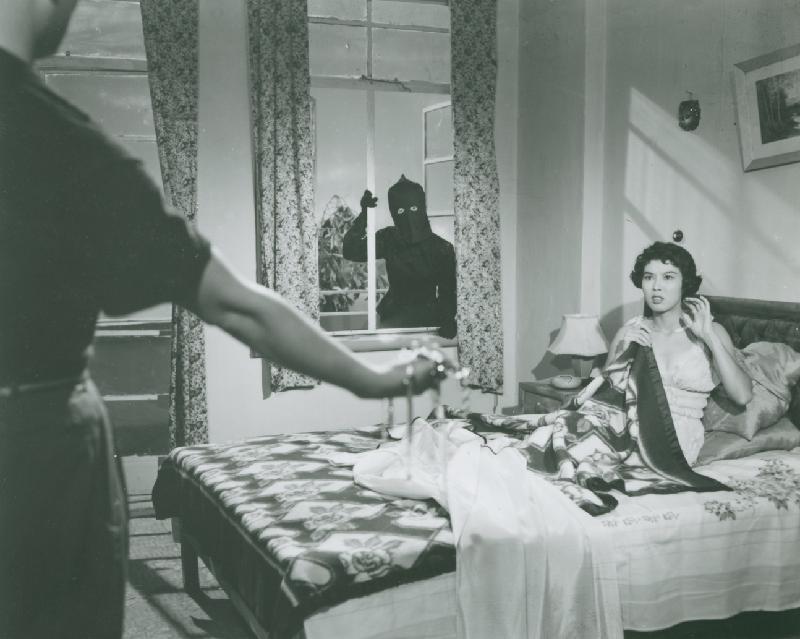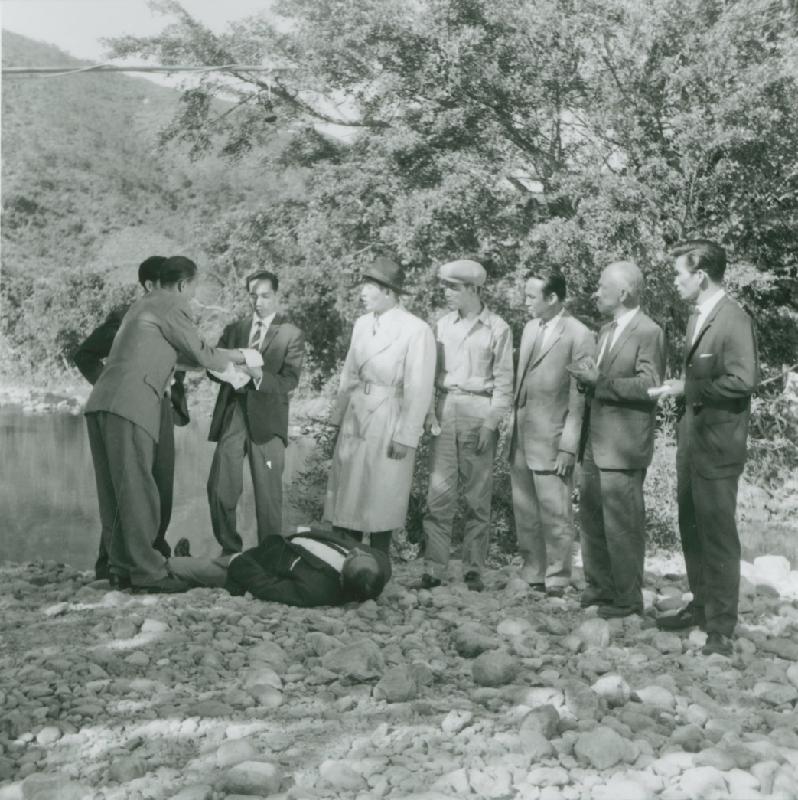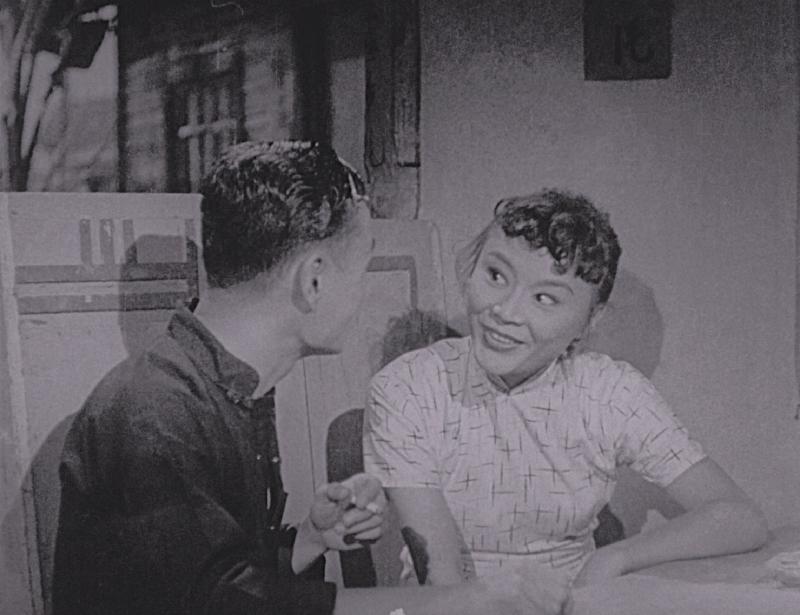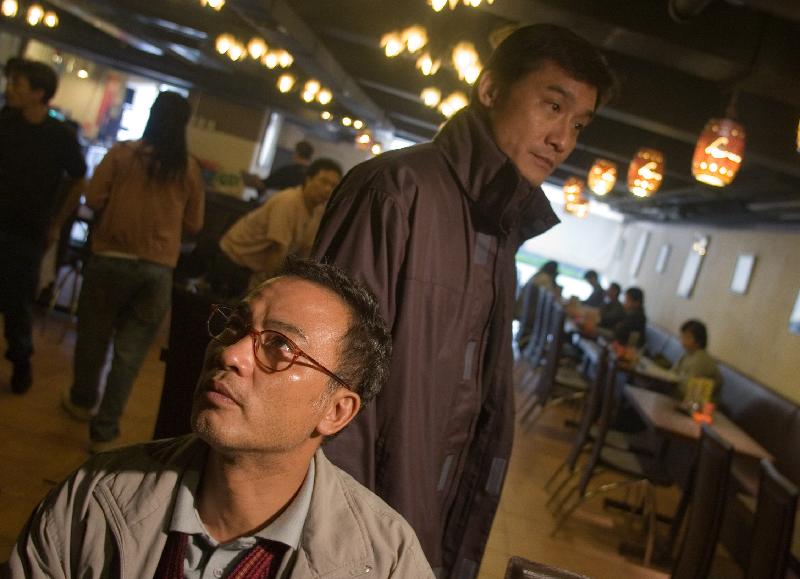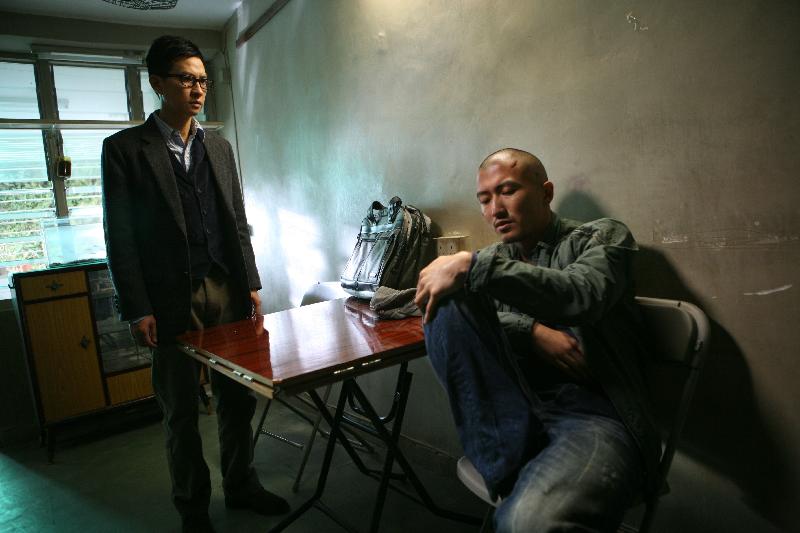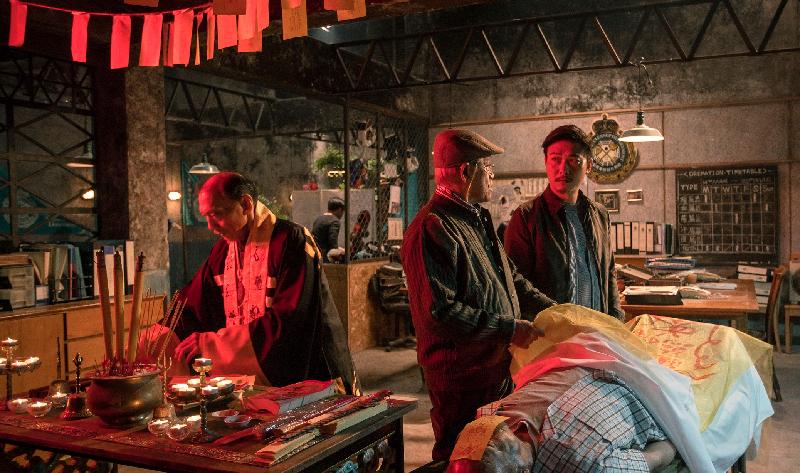Film Archive’s “Archival Gems” series to demonstrate changes in Hong Kong movies (with photos)
The Hong Kong Film Archive (HKFA) of the Leisure and Cultural Services Department will present "Time After Time" as part of its "Archival Gems" series. From November 2021 to May 2022, two movies of the same theme will be screened on the first Sunday of each month to show audiences the different ways in handling movie themes by filmmakers across the generations.
Not only is romance one of the common genres of Hong Kong movies, it also reflects the changes in people's perceptions of love and marriage over time. "The Doctor and the Prima Donna" (1960) features Mao Mei as a renowned dancer and a movie star who marries an eminent doctor, Kwan Shan. Mao hopes to strike a balance between her family and career. The couple are eventually on the brink of divorce as Mao secretly continues her career despite her husband's opposition. The movie makes references to Hollywood musical films and is directed beautifully with the use of limited technical resources at that time. In the modern romance titled "My Prince Edward" (2019), main actress Stephy Tang accepts a proposal from her cohabitating boyfriend Chu Pak-hong. However, Tang is still in a sham marriage which she entered in the past for money. When dealing with the mess, Tang and Chu's disagreements on marriage surface, bringing out trade-offs between marriage and personal freedom from the new generation's perspective.
Authentic martial arts skills and thrilling gunfights are among the special features of Hong Kong action movies. Apart from the fights, many films like to borrow storylines and styles from Western titles, mixing action, romance and comedy elements into the scripts. "Black Cat, the Cat Burglar" (1956) depicts the story of a retired cat burglar Ng Cho-fan who is forced back into action in an attempt to stop a copycat from committing crimes. Taking reference from movie maestro Alfred Hitchcock's "To Catch a Thief" (1955), "Black Cat, the Cat Burglar" imitates the original tempo and humour, and adds a local flavour to the protagonists' romance. "Yesterday Once More" (2004) also references the stylish classic "The Thomas Crown Affair" (1968) with Director Johnnie To elevating the game of cat and mouse between thieves Sammi Cheng and Andy Lau to the concept of love. Shot in Italy with flamboyance and charm, the main characters showcase their impressive panache through fights and bickering.
Detectives play an important role in cops and gangsters films, a must-see genre of Hong Kong movies. In "The Shadow" (1961), Law Kim-long plays gentleman detective Lui Hak, showcasing his modern style, cleverness and agility. In the main plot, a murder case arises from a fortune's inheritance, and becomes more inspiring as it touches on the common theme of underprivileged parents doing anything at all cost for the sake of their children. In "Mad Detective" (2007), Lau Ching-wan appears as a detective who claims to have the ability to see people's "inner ghosts". His craziness helps him solve a case while bringing out complicated relationships between the characters. The high quality of the movie earned it best screenplay honours at the 27th Hong Kong Film Awards and the 14th Hong Kong Film Critics Society Awards.
Not only do detectives' images change over the time, images of female characters in police thrillers are also transforming. Sheung-kwun Kwan-wai is featured as an attractive factory worker in "An Unusual Crime at Night" (1956). Knowing her boyfriend has become the scapegoat of a homicide case, she skillfully deploys a trick to find out the truth, showing her charm as a female detective. Unlike the Robin-Hood style heroines in conventional detective movies, "An Unusual Crime at Night" focuses on a grassroots social network and portrays the dramatic incidents of a factory worker in a realistic manner. In "Eye in the Sky" (2007), Kate Tsui is cast as a new recruit of a police surveillance team who needs to track down Tony Leung Ka-fai, the ringleader of a gang of well-organised armed robbers. Although there are only a few gun fight scenes in the movie, the film has made use of images of eye contacts, spying signals and parallel editing to create an enthralling story.
Undercover agents and informants are also typical characters in gangster thrillers. In "The Murder Case at Club 99" (1956), a detective's daughter, Law Yim-hing, and gambler Lam Kau work as the police's undercover agent and informant respectively. Their mission is to gather criminal evidence of syndicate Club 99 boss Sek Yin-tsi. Influenced by Hollywood's semi-documentary style, the film is enjoyable with its straightforward plot and realistic action scenes, without involving a love affair as a side story. Starring Liu Kai-chi and Nicholas Tse as police informants, "The Stool Pigeon" (2010) emphasises the couple's helpless situation as they have no one to rely on and cannot please both police and gangsters. The movie also explores themes of redemption and grievances beneath the surface of a dog-eat-dog world. It enlarges the role of informants by adding details and emotions, as well as revealing the morality of police officer Nick Cheung, who manages these informants from behind.
Hong Kong style vampires (jiangshi) is a popular genre in 1980s Hong Kong movies, establishing unique frameworks and symbols. Back in the 1950s, coffin homes of corpses had already been featured in "Stealing the Beauty's Corpse at Night" (1955). The movie depicts the story of a brother and his little sister who died because of villains, and were buried in a coffin home. The place is soon haunted which attracts attention from others. The film creates an eerie and uncanny atmosphere with its clever camera angles, sound and editing. The "Vampire Cleanup Department" (2017) blends the traditional jiangshi movie style and mystery story with a romantic love tale between two youngsters. The movie tells the story of a secret group, which helps slay a vampire. One of the members, Babyjohn Choi, falls in love with vampire Lin Min-chen after being bitten by her during an operation. The film is a homage to the traditional jiangshi genre in many aspects, with a sense of freshness added by the participation of the two young protagonists.
Characterised by versatile styles and themes, ghost films belong to another special genre of Hong Kong movies. Both "A Vampire Pays Offerings to the Moon" (1958) and "Home Sweet Home" (2005) explore how the title characters turn ghostly because of maternal love. The female vampire Sheung-kwun Kwan-wai in the former was poisoned to death and left behind her 6-month-old son. After her tragic death, a myth about a vampire making offerings to the moon at midnight begins to spread and is passed down the generations. The ghost story focuses on the depiction of humanity rather than spooky ghost images, creating a sorrowful yet fearless atmosphere. In "Home Sweet Home", the son of Shu Qi and Alex Fong mysteriously disappears without a trace. They desperately search for him but in vain. They finally discover that their son has been kidnapped by Karena Lam, a hideous monster driven insane by the loss of her own son, who secretly lurks in secret ventilation and trash pipes. The movie ultimately shows the mental changes of the main characters, as well as how the two kinds of maternal love turn them into monsters.
Each pair of screenings will be accompanied by seminars conducted in Cantonese. Speakers will include Lau Yam, Shu Kei, Matthew Cheng, Pierre Lam and Eric Tsang Siu-wang. Admission is free.
"The Doctor and the Prima Donna" is in Mandarin, and "The Murder Case at Club 99" and "Stealing the Beauty's Corpse at Night" are in Cantonese. The three films are with Chinese lyrics. "Black Cat, the Cat Burglar", "The Shadow", "Mad Dectective", "An Unusual Crime at Night", "A Vampire Pays Offerings to the Moon" and "Home Sweet Home" are in Cantonese and without subtitles. The others are in Cantonese and with Chinese and English subtitles. "Mad Dectective" is classified as Category III and only persons aged 18 or above will be admitted.
Tickets priced at $55 are now available at URBTIX (www.urbtix.hk). For credit card telephone bookings, please call 2111 5999. For programme details, please call 2739 2139 or visit www.filmarchive.gov.hk/en_US/web/hkfa/pe-event-2021-tat2.html.
In view of the latest situation of COVID-19, the audience should take note of the latest service arrangements for the screening venue, admission and seating to be implemented. For details, please call 2739 2139 or visit www.filmarchive.gov.hk/en_US/web/hkfa/home.html.
